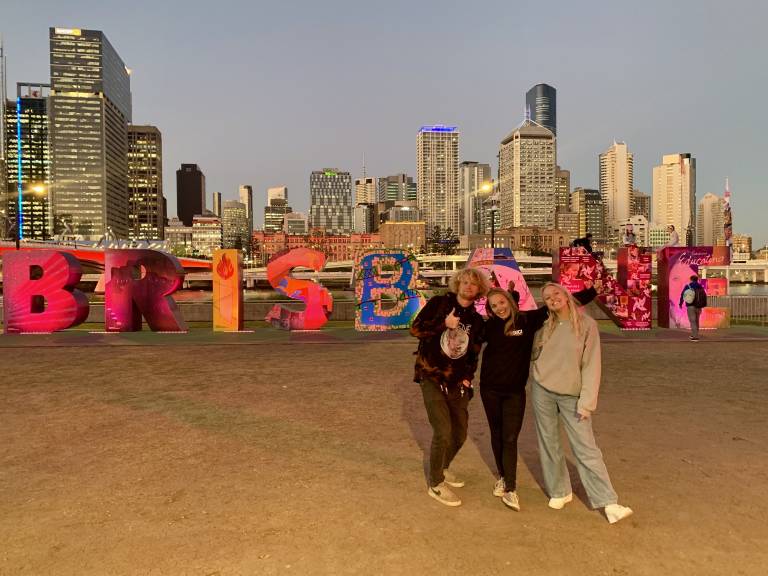A Guide to Inter-country Travelling
5 March 2020
In Eleanor's second blog she tells us about inter-country travelling. Read on to find out more.

Travelling within your host country outside the city which you reside in is a must to experience everything the country has to offer. Different cities provide a unique interplay of interactions with culture, locals and entertainment. While the disparities between city and rural life exhibits how diverse the same country can truly be. So indulge yourself in the diversity, and plan to see it all!
Australia
Australia is huge. It is easy to forget sometimes when you stay within the realms of your new locality or state. It’s over 7.5 million square kilometers in size. Flying from one side of the country to the other takes 5 hours, and driving 41 hours. The fact 85% of the population lives near the coast makes travel planning a little easier, as the majority will take place around these coastal areas. Of course, you should also plan to venture through the middle via the outback at some point, though that is an entirely different ball game.

Getting around
Assuming you are a typical student on a tight budget, flying domestically in Australia is the least economically viable option. As a typical Brit who values trains as a convenient mode of of transport, Australia does not have an efficient rail network over long distances. Another option would be to book on various tours which often operate a bus service and co-ordinate different activities which saves you the hassle of planning your own itinerary. This can be a great way of meeting new people- there are a multitude of companies that gear tours specifically for young, like-minded people. For me, I found renting a car with friends the best way to experience a classic Aussie-style road trip. If you value the flexibility to travel wherever you want, and to have control over how to spend your time travelling, then by car is the way to do it!
Budgeting
It’s easy to lose track of your spending when you’re on the road, especially when you’re exhausted from fun-packed days its too tempting to just eat out for every meal. Make sure to pack a portable camping stove to avoid this- by planning meals in advance and shopping at local supermarkets, you can cook for yourself rather than resorting to a Mcdonalds every night. In terms of accommodation, travelling with all your camping gear means you can avoid staying in hostels (although it is nice to treat yourself to one every now and then as they aren’t that much more expensive than camping fees.) Budgeting is essential to travelling- not only because you can spend your money on more of the fun stuff, but also because its so important to have some security in case of emergencies.

Potential problems
Road trips in Australia are rarely a smooth ride- bumps in the road are inevitable. A big hurdle is often the unpredictable nature of Australian terrain which can often really damage certain vehicles if you’re unprepared. Breakdowns happen a lot— it can be particularly scary when you’re stranded in the middle of nowhere. Always get your vehicle inspected or serviced before long drives. Its important to be prepared and aware of the conditions of where you’re driving- these cautionary measures often seem trivial, but are necessary in Australia. A particularly big Australia-specific problem is bush fires, particularly during the summer months. Make sure to stay updated with official weather warnings and instructions- its common to have to rearrange plans to negotiate with the dangerous weather. It sounds scary but don’t worry, as long as you’re vigilant and sensible you should be able to work around it.

Be a tourist in your own country! Explore what it has to offer beyond your usual surroundings. With careful planning and an open mind, you’ll soon feel comfortable with the discomfort and novelty of travelling.
By: Eleanor Lake
 Close
Close

